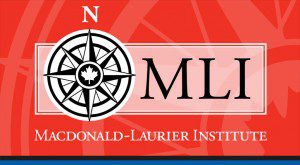 Much has been made of the e-commerce provisions of the Trans-Pacific Partnership trade deal. Richard C. Owens, writing in the National Post, says the agreement will only help Canadian business, innovation and consumers.
Much has been made of the e-commerce provisions of the Trans-Pacific Partnership trade deal. Richard C. Owens, writing in the National Post, says the agreement will only help Canadian business, innovation and consumers.
By Richard C. Owens, Jan. 8, 2015
Like the intellectual property chapter of the Trans-Pacific Partnership, the electronic commerce chapter has taken some knocks. Professor Michael Geist of the University of Ottawa Faculty of Law has been particularly critical, calling both chapters a “major failure” of negotiation. A comprehensive assessment shows them to be anything but.
The IP chapter is long. The electronic commerce chapter (chapter 14) is not. This reflects the far wider international agreement on IP rules and principles, as reflected in many treaties. Electronic commerce is newer; governments are still determining how best to legislate over it effectively, and have adopted different approaches. Out of the diversity and paucity of electronic commerce regulation emerges a narrow common ground. Thus one of chapter 14’s articles provides for extensive international cooperation on the development of policies and laws. Perhaps the relative brevity of the chapter is the reason that criticism has focused on what it doesn’t say, rather than what it does. As Professor Geist said, “Canadian negotiators adopted a defensive strategy… doing little to extend Canadian policies to other countries.”
Extend Canadian policies to other countries? Could that seriously be an objective of a Canadian trade negotiation team? Isn’t trade negotiation tough enough without aspirations to legislative imperialism?
Professor Geist laments that the Chapter 14 provisions dealing with unsolicited commercial electronic messages are insufficiently like Canada’s Anti-Spam Legislation (CASL). But why would Pacific Rim nations want CASL, which is so harshly judged in Canada? Look at what, in the absence of copying CASL, was accomplished in the TPP. It requires minimization of unsolicited messages, or the ability to opt-out of, or consent to, commercial messaging; recourse against suppliers for unwanted messages; and international cooperation in cases of concern. This is good work for a treaty whose object is trade generally, not solely electronic commerce.
Professor Geist raises similar complaints about the personal information protection provisions of the TPP. In this area, Canada has a patchwork of laws across the country; why would the nations of the Pacific Rim be persuaded to adopt Canada’s example (assuming that they could make sense of it)? And again, the TPP duly emphasizes the importance of the protection of personal information, requires enforceable privacy protection and requires each party to encourage the development of mechanisms to promote compatibility between their differing privacy regimes. This is an improvement over the existing state of affairs in that it creates the expectation of a developing reciprocal protection of privacy. Chapter 14 also requires the parties to promote international compatibility of their regimes.
Notch another one for the consumer.
Professor Geist worries also because the TPP requires that parties allow the cross-border transfer of business data, including personal data. This, of course, is now the norm and international business would be severely hampered without the power to make such transfers. But lest anyone fear that this will cramp Canada’s ability to protect sensitive data, the rule does not apply to data held by or contracted for by governments, thus saving British Columbia’s and Nova Scotia’s existing initiatives regarding the processing of health information, and allowing others to be formed. It is also subject to any policy a party may establish for any “legitimate policy purpose,” provided it doesn’t constitute a means of arbitrary or unjustifiable discrimination or disguised restriction on trade, and does not impose restrictions greater than are required to achieve the objective.
By setting out principles rather than dictating legislative text, the TPP preserves a wide scope to governments to mould law and policy to their own circumstances. Preserved too is the ability of any government or person to try to persuade a party to take one legislative approach or another. The field remains open to convince, for instance, Vietnam or Brunei to adopt CASL; but to expect the TPP to set out detailed legislative policies where no international consensus is yet formed is to forget that it is a trade treaty, not a novel IP/electronic commerce initiative. Indeed it is remarkable what a forward-looking treaty it is, given the tight constraints of trade negotiation. Chapter 14 right off establishes non-discriminatory treatment of digital products, and a prohibition on customs duties on them, but also does so much more to create a shared and safe electronic commerce environment.
Missing in TPP commentary to date is the extent to which it enshrines consumer-oriented principles. In the IP chapter we see principles like the importance of the fair dealing exception to copyright, of the public domain, access to medicines, protection of public health, and assistance to less-developed economies. The electronic commerce chapter underscores the importance of online consumer protection, personal data protection, free access to the Internet and protection from spam emails, as well as international cooperation on these and other matters, including cybersecurity.
The TPP is good for Canadian innovators, business and consumers. Our new Liberal government should be encouraged to adopt it without delay.
Richard C. Owens is a Toronto lawyer and adjunct professor of law, and author of the recent “Debunking Alarmism over the TPP and IP: Why the Trans-Pacific Partnership is a Good Deal for Canadian Innovators” for the Macdonald-Laurier Institute.




